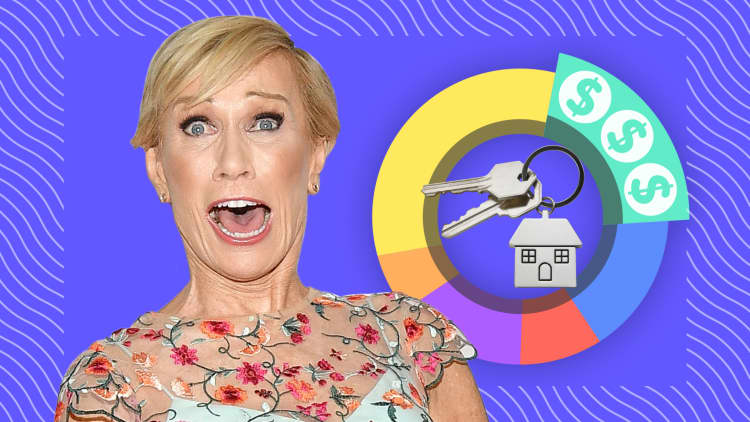Want to make better decisions in your personal life and the workplace? Turn to math, says Hannah Fry.
The British mathematician, bestselling author and host of Bloomberg Media's "The Future with Hannah Fry" writes and speaks about how simple bits of math can benefit people's day-to-day lives. There's a mathematical way of looking "at almost anything," she tells CNBC Make It.
The trick is getting people to see those connections. "The math you learn in school is so, so different to what the subject actually is," Fry says. "You leave school with the impression that math is this subject that belongs in dusty textbooks, over there in the nerd corner."
Fry's mission is to change that misconception. She points to one particular mathematical concept — known as the Fermi problem — as a great way to understand how a tiny bit of math can change the way you make decisions.
Highly successful people — from CEOs to other leaders — know how to maximize the information available to them to make high-stakes decisions. Here's how to do the same, Fry says.
The Fermi problem
The Fermi problem might sound familiar, because it's become popular in job interviews. Here's an example: How many piano tuners exist in Chicago?
Learning how to answer such a question means developing a crucial success skill, Fry says: making swift, well-informed estimates. The technique is named after 20th century physicist Enrico Fermi, who had a remarkable ability to make astute estimates based on very little data.
In one of his most famous examples, Fermi — who created the world's first nuclear reactor — accurately estimated the strength of the atomic bomb before anyone "had any idea" how powerful it would be, Fry says.
Ahead of the Manhattan Project's first nuclear test, Fermi grabbed a piece of paper and tore it into pieces. He released the pieces from an observation tower as the test began, and tracked how far they traveled before landing.
Observing those distances was enough to estimate how many equivalent tons of dynamite the bomb would ultimately be, Fry says. Fermi found one measurement he knew, and expanded outward from there.
Developing some healthy skepticism
So, how many piano tuners exist in Chicago?
Start by breaking it down. What percentage of people have a piano in their house? How many times would that piano need to be tuned? How many pianos can one tuner fix in a day?
Unlike the broad question, these smaller components have tangible answers: You can look up the population of Chicago, find stats on the average number of pianos per household and learn how often a typical piano needs to be tuned.
"Suddenly, you have this idea of the demand for piano tuning in Chicago ... and that process actually applies to all kinds of different things," Fry says.
You can use the same principle on real-world examples, too — applying some healthy skepticism to numbers you'd otherwise take for granted.
When Fry sees figures about how long it'll take to close the gender wage gap, for instance, she does her own mental calculations to see if her best guesses line up with the expert analysis.
Similarly, if you're in a staff meeting and you notice that certain numbers in a presentation look a little wonky, raise your hand. Or, apply some closer scrutiny to the numbers behind a major life decision — like estimating how long you could live off your savings, before you quit your job.
"It's incredibly useful when it comes to looking around you and deciding whether you believe the numbers you're seeing," Fry says.
That helps you make more confident decisions, especially when your choices defy conventional wisdom, she adds.
"When you look at [even] just the numbers that we're bombarded with in the news, having these little techniques in your pocket can help you be a bit more skeptical about the numbers around you," she says. "You'll realize how most of those numbers are really just educated guesses."
Get CNBC's free Warren Buffett Guide to Investing, which distills the billionaire's No. 1 best piece of advice for regular investors, do's and don'ts, and three key investing principles into a clear and simple guidebook.
Sign up now: Get smarter about your money and career with our weekly newsletter


